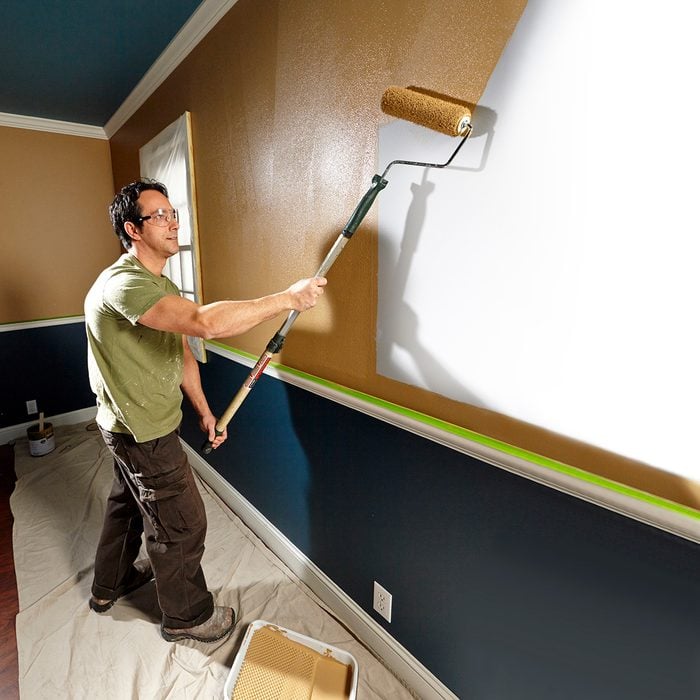
Painting Tips
You can always tell a perfect paint job because the new wall paint is only on the wall—not on the doors, windows, ceiling, carpet or trim. Painting, by its very nature, is a messy operation, and keeping the paint where it belongs requires solid taping techniques and well-planned surface protection. Maintaining your tools for the next job is just as important. We asked picky painting pro Steve Schmid how he goes about keeping it all neat and clean.
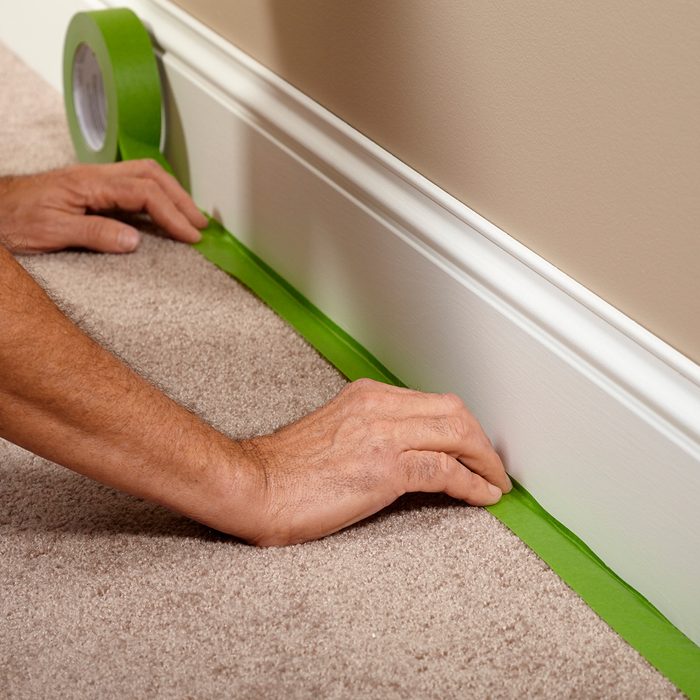
Tape Off the Carpet
When painting baseboard, some painters slip masking tape under the baseboard. But this is time-consuming and doesn’t create a seep-proof seal between the baseboard and the carpet. So Steve presses the tape against the baseboard, covering about 1/4 in. of the bottom edge. Press down hard on the carpet while you apply the tape. That way, the tape will hold the carpet down while you paint. Later, when you remove the tape, the carpet will rise and cover the unpainted edge of the baseboard.
Steve prefers a high-quality tape for this job because it grabs and holds the baseboard better. He adds a strip of cheap tape to create a wider shield over the carpet. Finally, he spreads a drop cloth over the tape. This technique won’t work if your carpet has a very low pile or if you have no padding under the carpet.
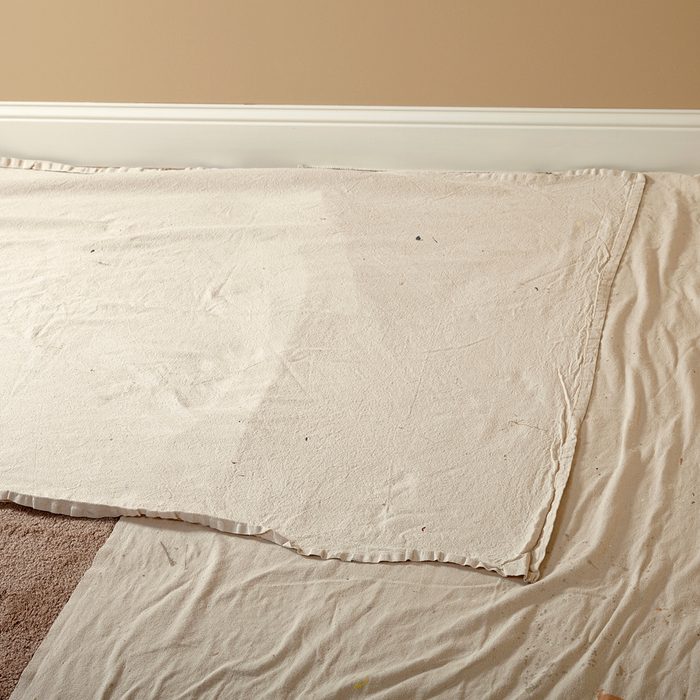
Narrow Drop Cloths are Better
Large drop cloths work great if you’re painting a ceiling, but they’re overkill if you’re only painting walls and trim. Drop cloth runners are usually 3 to 4 ft. wide and are much easier and safer to work with because you don’t have to fold them several times. Folded drop cloths are easy to trip on, and nothing good results from tripping with an open paint can in your hand. Steve paints a lot of bedrooms and prefers runners no longer than 10 or 12 ft. And when they get dirty, Steve washes his at a laundromat that has oversize washers and dryers. Learn why your dryer is squeaking.
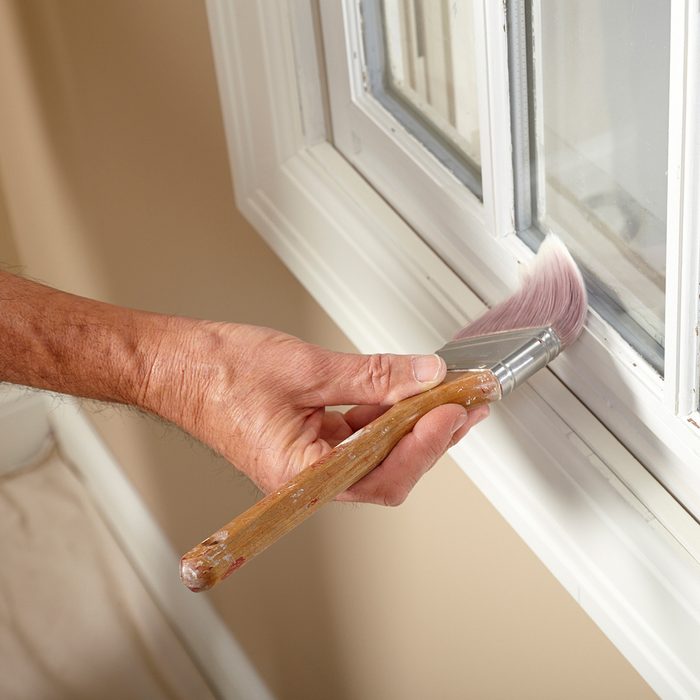
Clean up with Old Brushes
Even though you diligently clean your brushes, they will eventually wear out. Consider saving a couple of different sizes to repurpose as cleaning brushes. An old paintbrush is an excellent tool for dusting off window trim or whatever else needs a light touch.
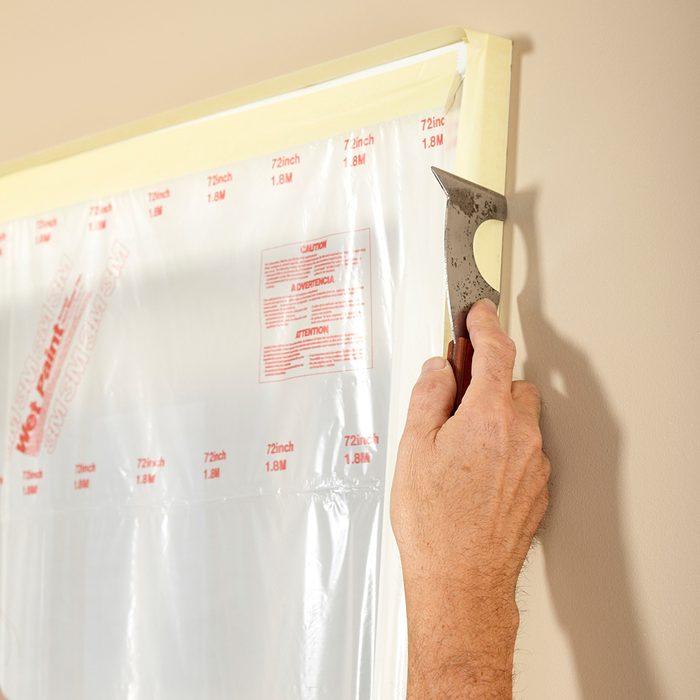
Set Your Tape
After you apply masking tape, run a putty knife, or a 5-in-1 tool, over it to “set” the tape to the trim. This bonds the tape to the surface and helps stop paint from seeping under the tape and up onto the trim.
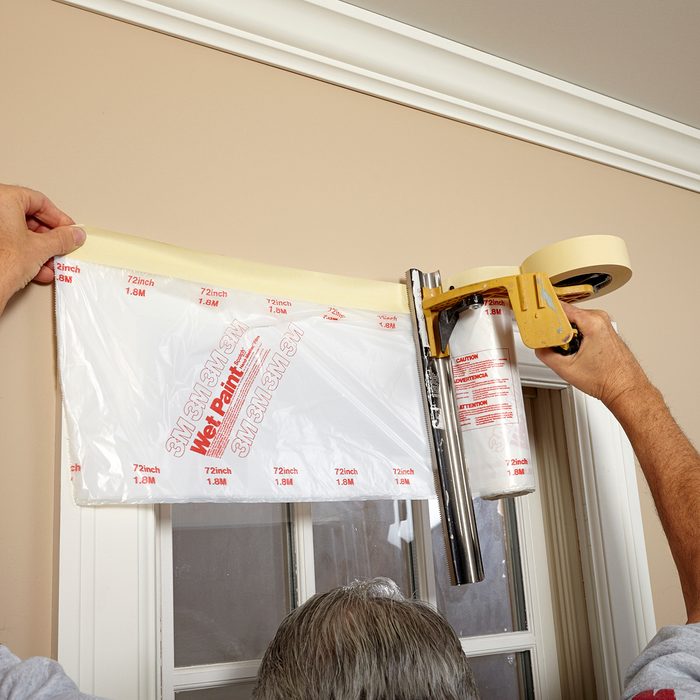
Completely Cover Windows and Doors
The masking tape you installed to protect the outside edge of the trim won’t necessarily protect windows or doors. So it’s important to cover them completely, especially if you’re painting the ceiling. Here’s how Steve does it: He hangs plastic with a Hand-Masker M3000 tool, which dispenses the tape and a folded piece of plastic in one pass. Before unfolding the plastic, he tapes off the perimeter of the trim. Then he unfolds the plastic so it completely covers the door or window and sticks it to the trim tape.
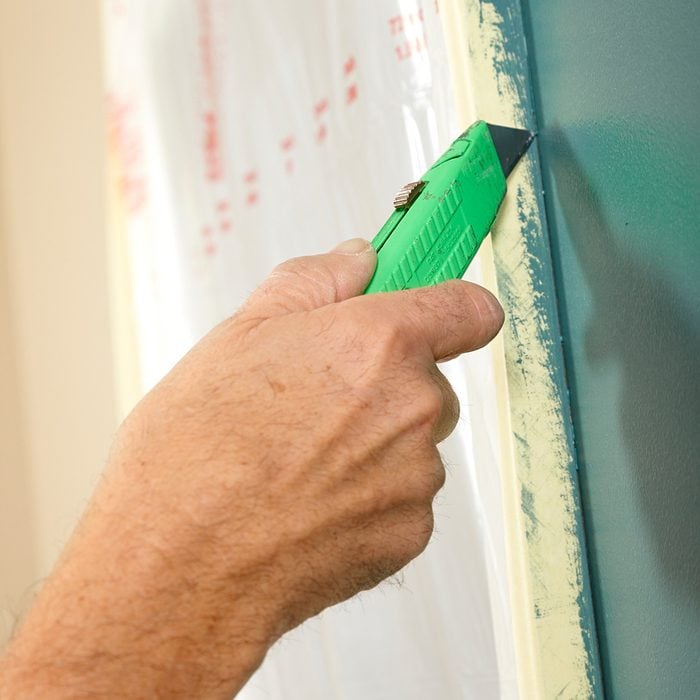
Cut the Paint Before Pulling the Tape Off
When you remove masking tape that has been left on too long, the tape can pull chunks of paint off with it. Steve usually pulls off his masking tape while the paint is relatively wet; rarely does he leave it on overnight. But when it has stayed on too long, he gently cuts the tape along the line where the paint meets the trim. This prevents the paint from sticking to the tape and coming off the wall.
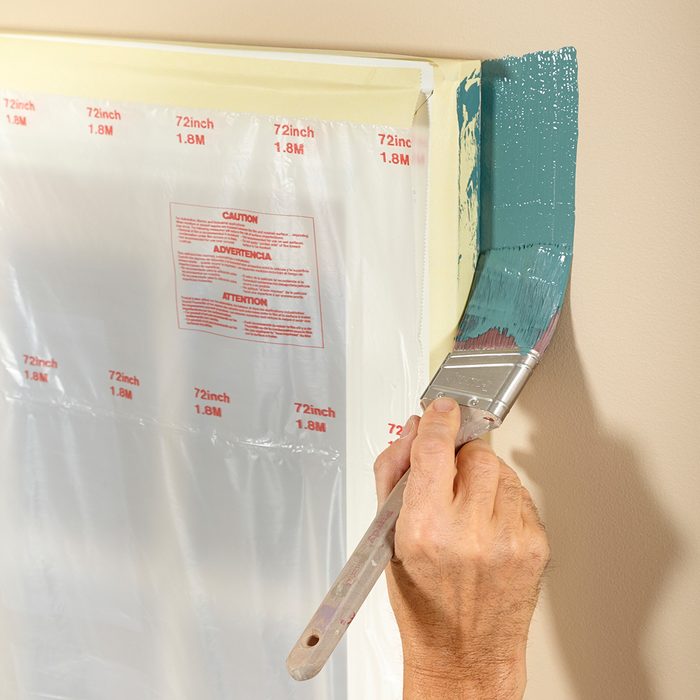
Don’t Flood the Masking Tape
Masking tape is a precaution, not a guarantee. No matter how careful you are, there may still be a void or two between the tape and the trim. If you expose the tape to a bunch of paint, some is bound to get through. The trick is to pretend the tape isn’t there. Don’t force a lot of paint into the corner at an angle. Instead, lightly load the paintbrush and run it down parallel to the trim.
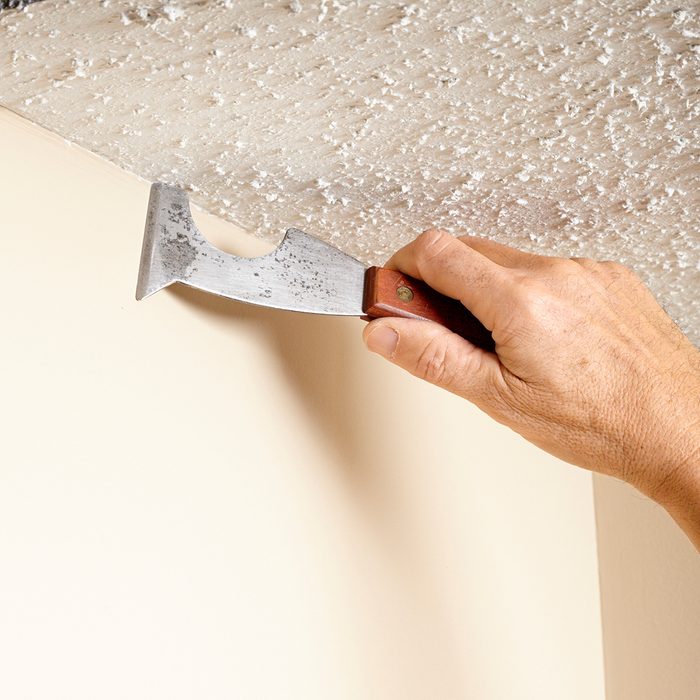
Create a Smooth Path Along the Ceiling
It’s hard to create a straight line when you’re painting the wall along a textured ceiling. As you move your paintbrush along, the bristles get hung up on the texture, which creates noticeable paint globs. Use your 5-in-1 tool or a screwdriver to remove about 1/8 in. to 1/4 in. of texture, creating a clear path for the brush.
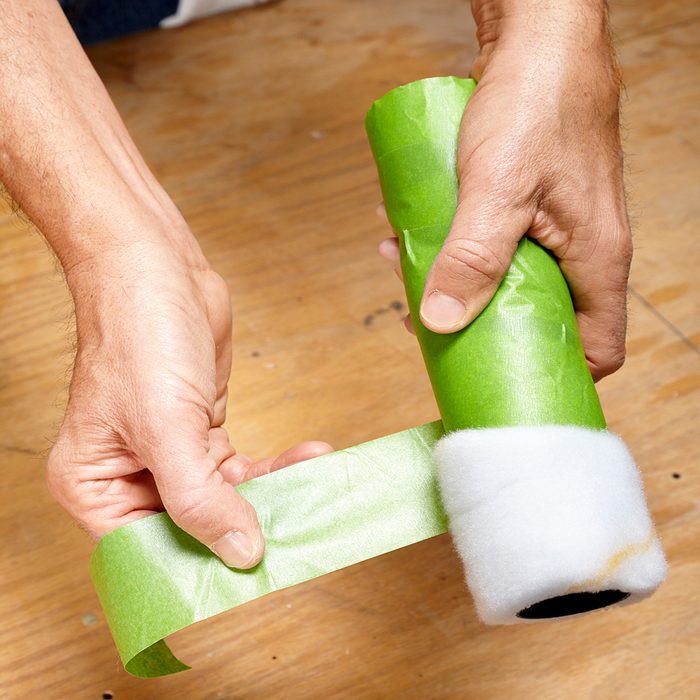
Remove the Fuzz
Some tools need cleaning even when they’re brand new. Some new roller covers (usually the cheaper ones) have a layer of fuzz that detaches from the cover. The first time you load up a fuzzy roller, the paint mixes with the fuzz and creates small bumps on the wall. One way to remove the fuzz is to wrap masking tape all the way around the roller cover. When you pull the tape off, the excess fuzz will be pulled off along with it.
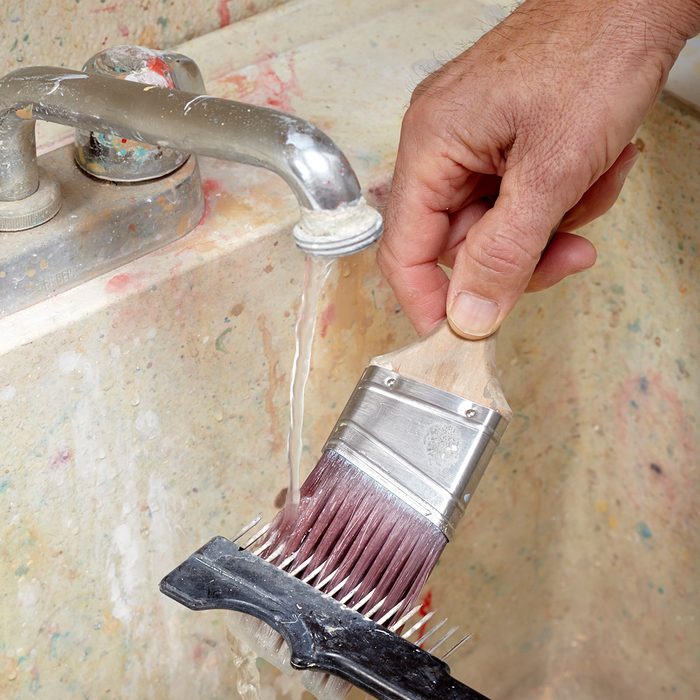
Comb the Brush
A paintbrush comb is the best tool for cleaning a brush. Unlike other brush cleaning tools, a comb penetrates and cleans deep between the bristles. It also prevents the bristles from sticking together, which helps your brush stay soft and retain its shape longer.
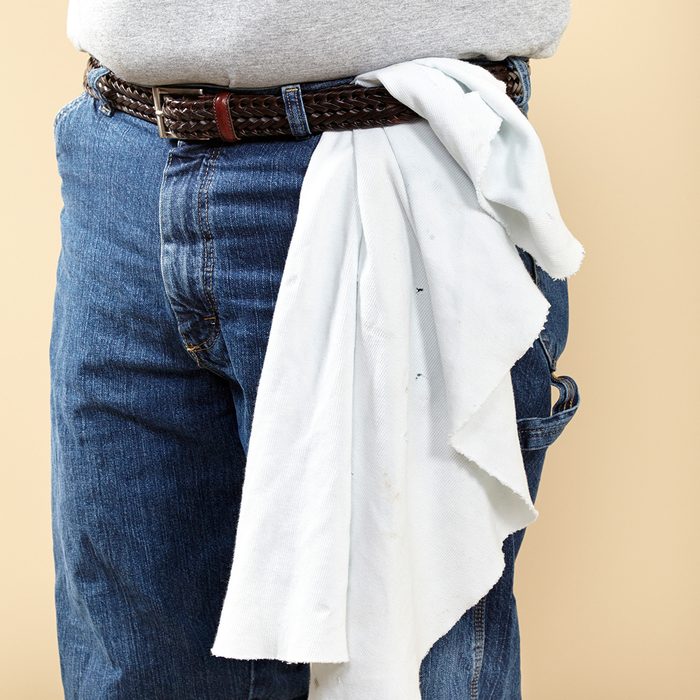
Wear a Rag
Steve never worries about looking presentable when he meets someone for lunch. That’s because he seldom gets paint on himself. Before the first can of paint is cracked open, he attaches a rag to his belt. So when he subconsciously wipes his hand on his pant leg, he’s protected. He uses a large rag and unfolds it a bit, so the messy side stays facing out.
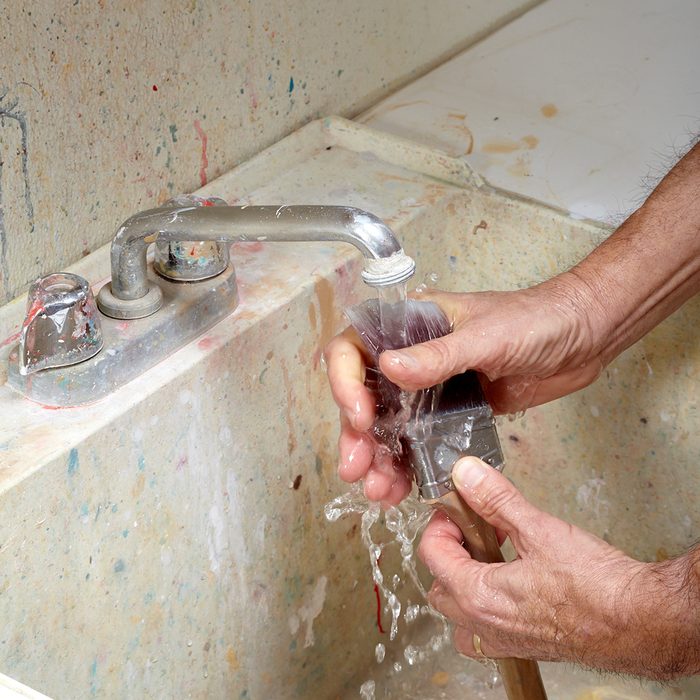
Run Water Down Into the Bristles
After a few hours of painting, paint can work its way up into the bristles covered by the steel ferrule. If you don’t clean the paint out of there, it will build up and cause your brush to get stiff and misshapen. After you comb all the paint out of the bristles, run water down into the brush. Finally, straighten out the bristles with a comb before you put the brush away. Protect the bristles by storing the brush in the package it came in.
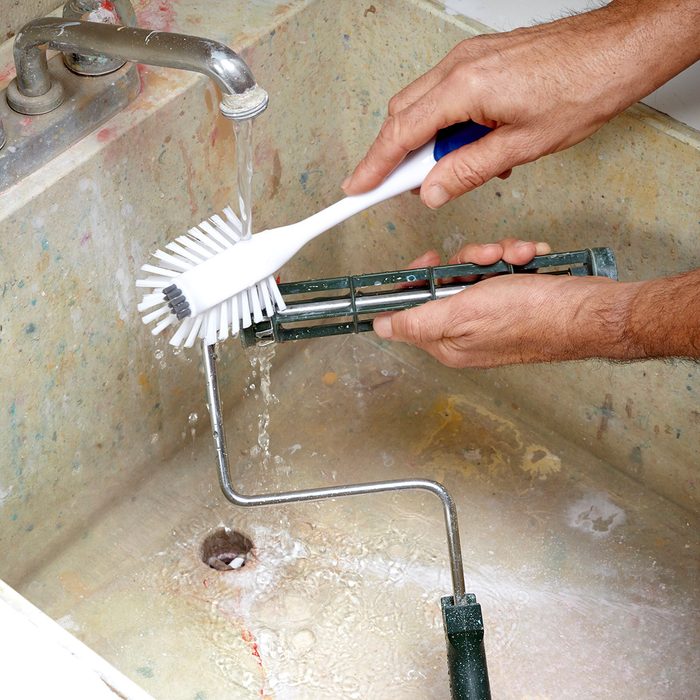
Scrub Your Roller
Don’t neglect your roller. If you don’t rinse off the roller, you’ll end up with hardened paint inside the bushings or bearings, and that will ultimately result in a paint roller that doesn’t roll. Keeping your tools clean doesn’t have to be expensive.
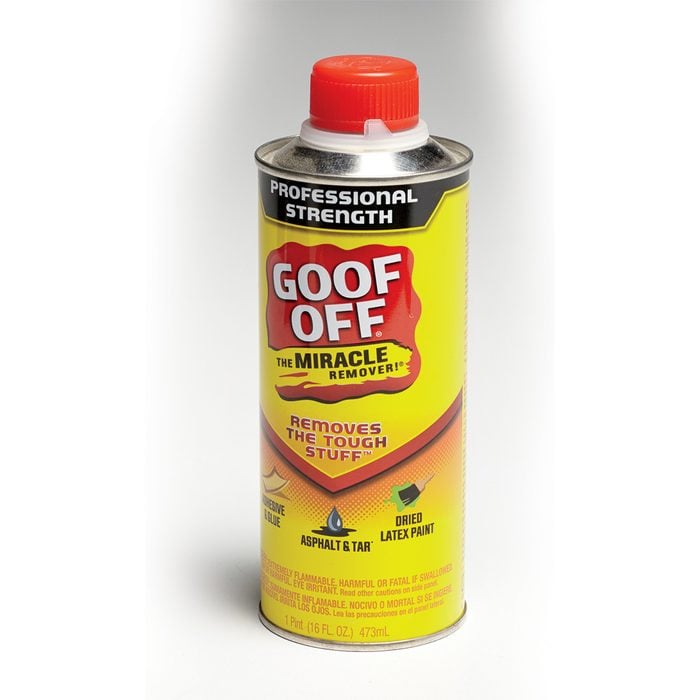
Clean up Your Mistakes
No matter how careful you are, you’re bound to get paint on something you didn’t mean to. Keep a can of paint remover on hand. Steve uses Goof Off, one of several brands available. Paint remover works great for removing dried latex paint from trim, countertops, door hinges, vinyl floors or whatever it is you spilled on.
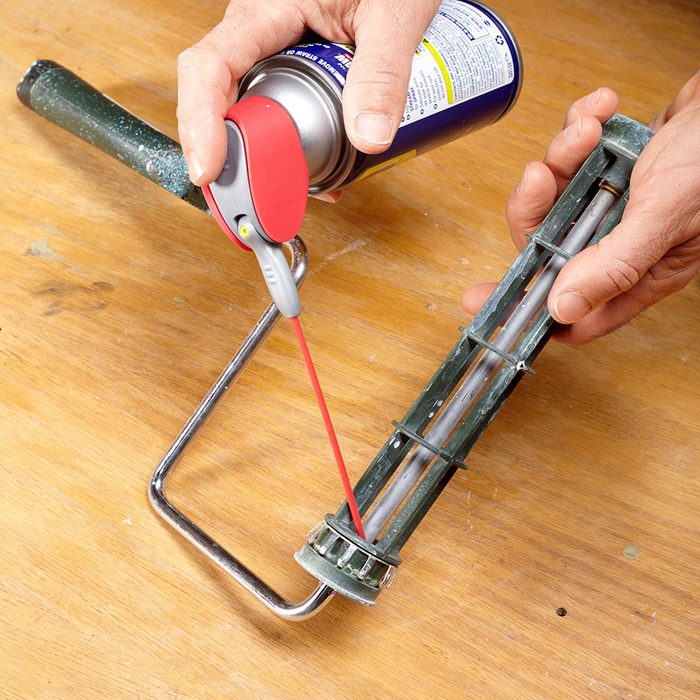
Lube the Roller
Metal rusts, and the metal bushings or bearings in your paint roller are no exception. Do yourself a favor, and spray a little lubricant on your paint roller before you store it. A rusty paint roller can squeak. Pushing a roller back and forth for several hours is monotonous enough; adding a few thousand squeaks might drive you completely insane.
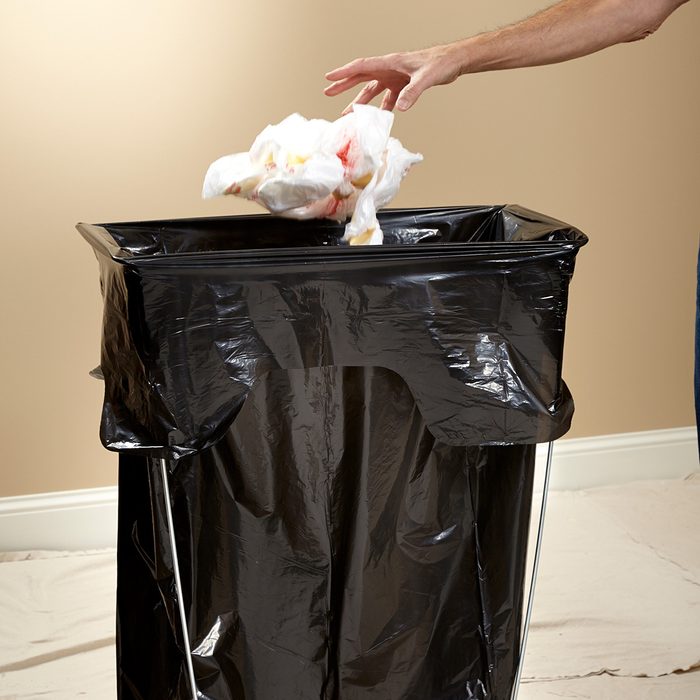
Keep a Garbage Bag Close at Hand
Never underestimate how much trash a painting job creates. And running around the house with big wads of plastic and tape covered in wet paint is not a good idea. Steve brings along his garbage bags on the first trip into the house. He either hangs a bag on a doorknob or sets one in a portable bag holder (garbage barrels take up too much room in his van).

Meet the Expert
Steve Schmid retired early from his career as a finance executive, and just to keep busy, he did a few painting projects for friends and family. His reputation grew and his hobby quickly became a second career. He works on mostly smaller jobs, and his customers range from picky to downright persnickety. He’s famous for leaving a room cleaner than when he found it.
